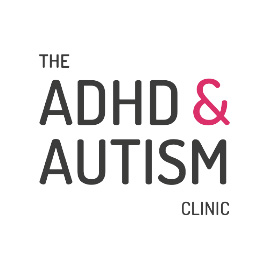One of the less well-known features of Attention Deficit Hyperactivity Disorder (ADHD) is that it is linked to an increased risk of developing obesity. The link between ADHD and obesity is complex and multifactorial, with a range of biological, environmental, and behavioural factors implicated in the development of both conditions. Some of the potential causes of weight gain in ADHD are explored below, as well as treatment options for reducing the effects of this link.
Difficulties with Organisation and Planning
One of the key features of ADHD is difficulty with organisation and planning. Individuals with ADHD may struggle with time management, prioritisation, and following through on tasks. These difficulties can extend to meal planning and preparation, leading to a reliance on convenience foods that are high in calories, fat, and sugar. Additionally, individuals with ADHD may be more likely to skip meals or eat irregularly, which can disrupt their metabolism and lead to weight gain.
The Dopamine Reward Network
Another potential cause of obesity in individuals with ADHD is the dopamine reward network. Dopamine is a neurotransmitter (a chemical messenger that helps to transmit signals between nerve cells in the brain) that plays a key role in regulating motivation, reward, and pleasure. Research has suggested that individuals with ADHD may have lower levels of dopamine in certain areas of the brain, leading to a dysregulated dopamine reward network. This can cause difficulties with attention, motivation, and impulse control, which may contribute to an increased risk of overeating and obesity.
In response to the dysregulation, individuals with ADHD may seek out high-calorie, high-fat foods as a way to self-medicate and regulate their dopamine levels. High calorie foods, such as those high in sugar and fat, have been shown to produce a greater dopamine response than low calorie foods, which may explain why they can be more addictive and lead to overeating.
Interrupted Circadian Rhythm
Individuals with ADHD may also be more likely to have an interrupted circadian rhythm. This refers to the internal biological clock that regulates sleep and wake cycles. An interrupted circadian rhythm can lead to irregular sleep patterns, which can in turn lead to weight gain. Lack of sleep is associated with increased appetite and cravings for high-calorie, high-fat foods, as well as decreased energy levels and motivation to exercise.
People with traits of ADHD may also find that they tend to eat late at night, which creates a ‘vicious cycle’ with the disrupted circadian rhythm. This can lead to overeating and poor digestion, which can also contribute to weight gain.
Impulsivity and Poor Self Control
Impulsivity and poor self-control are intrinsic features of ADHD. Individuals with ADHD may be more likely to make impulsive food choices, overeat, and binge eat. These behaviours can lead to weight gain over time. Additionally, poor self-control can make it difficult to adhere to healthy eating and exercise habits, further contributing to weight gain.
The potential causes of obesity in individuals with ADHD are complex and multifactorial. Understanding the potential causes of obesity in ADHD can help individuals with ADHD and healthcare professionals develop effective treatment and management strategies that address these underlying issues.
Medical management of weight gain in ADHD
Lisdexamfetamine is a stimulant medication that is commonly used to treat ADHD. However, it is also licensed for the treatment of moderate to severe binge eating disorder (BED) in adults. Lisdexamfetamine works by increasing the levels of dopamine and norepinephrine in the brain, which can reduce feelings of hunger and improve impulse control. Several studies have shown that lisdexamfetamine can be effective in reducing binge eating episodes and promoting weight loss in individuals with BED. A 2021 randomized controlled trial by McElroy et al., published in JAMA Psychiatry, found that lisdexamfetamine was superior to a placebo in reducing binge eating episodes and promoting weight loss over a 12-week period. In addition, the study revealed that lisdexamfetamine improved other symptoms of BED, including feelings of guilt and loss of control.
It is important to note that the use of lisdexamfetamine for binge eating disorder should only be initiated by a specialist and the medication should be used as part of a comprehensive treatment plan that includes other treatment approaches, such as cognitive-behavioural therapy and lifestyle interventions.
Cognitive Behavioural Therapy for management of weight gain
Cognitive-behavioural therapy (CBT) can be an effective treatment for obesity in individuals with traits of ADHD. CBT is a type of psychological intervention that helps individuals to identify and change unhelpful thought patterns and behaviours. In individuals with ADHD, CBT can help to address specific challenges related to planning, organisation, and impulse control that can make weight management difficult. CBT can also help individuals to develop coping strategies and problem-solving skills to manage these challenges and make healthier choices.
One approach to CBT for obesity in ADHD is to focus on building skills related to self-monitoring, goal setting, and problem-solving. CBT can help individuals to identify their emotional triggers for eating and develop alternative coping strategies, such as exercise or relaxation techniques.
Overall, CBT can be an effective treatment for obesity in individuals with ADHD, as it addresses the specific challenges and behaviours that contribute to weight gain and helps individuals to develop practical strategies for making lasting changes.

